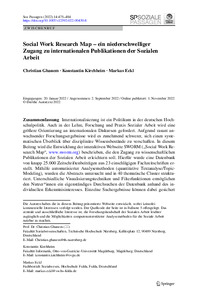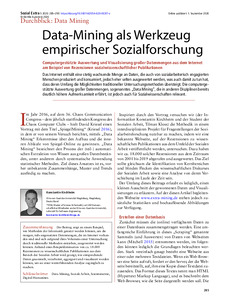Mining the Bundestag,
22 Jan. 2023
(posts)
Did you know that the German parliament publishes protocols for all of its proceedings in PDF format? It is relatively straightforward to download and parse them, so we can easily collect a dataset of transcripts of what seems to be every speech in the Bundestag since the Second World War.
My original idea was to mine the speeches for word associations. Some words will be associated with other words based on the intended connotation, and this association might change over time as the …
Categories:
Data Mining
1025 Words, Tagged with: Bundestag · Data Mining · Generative Models


